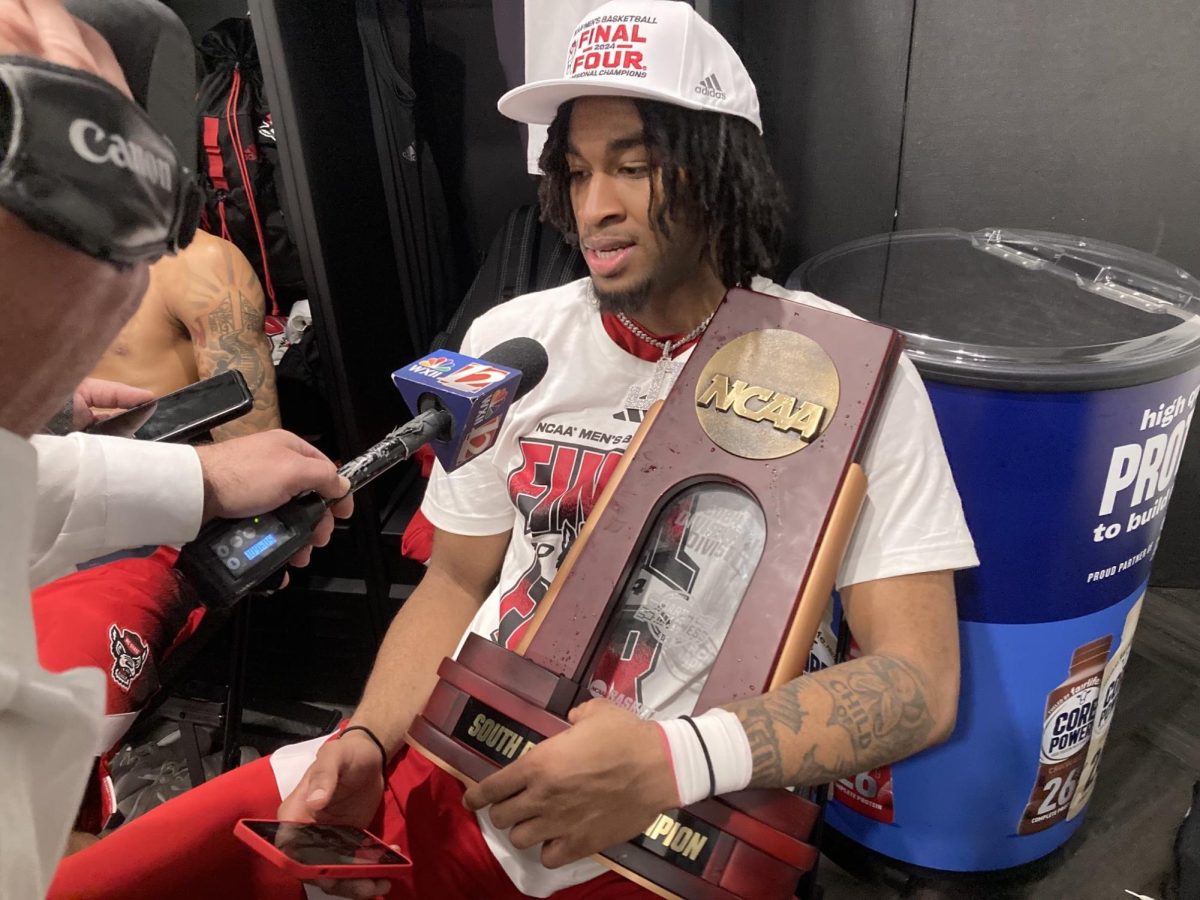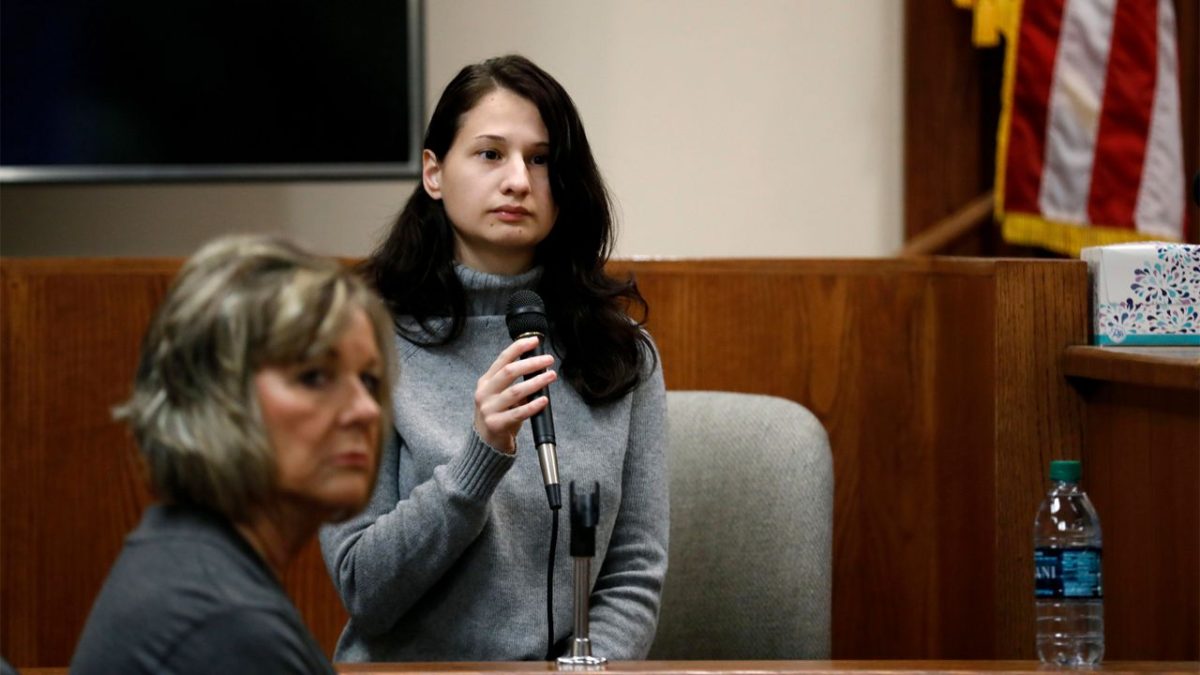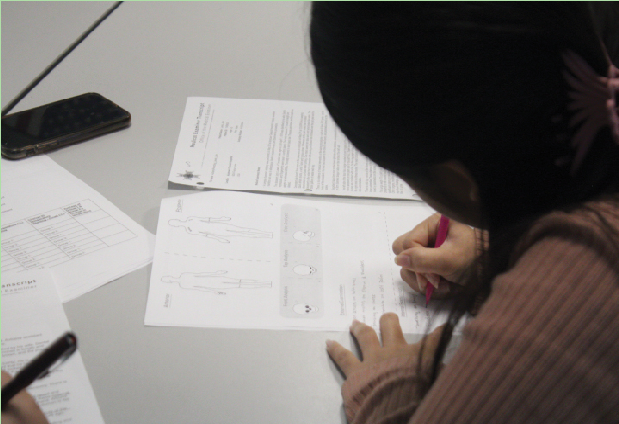Controversy spilled out of the Indiana State House on April 24 with the passing of House Bill 1608, otherwise known as the “Education Matters Bill.” Authored by Representative Michelle Davis, the bill prohibits teachers from teaching the topic of human sexuality to students in pre-kindergarten through third grade. Additionally, the bill creates regulations on pronouns and gender identity within schools. If an unemancipated minor asks to be called something other than their legal name, or go by a set of pronouns that contradict their birth gender, the school is legally obligated to notify the parents of the student within five days. The bill went through several rounds of changes. Originally the bill had language that more specifically targeted transgender students, but the bill’s final version included all students who would ask to be identified by a different name or pronouns.
Protestors packed the State House on February 20 voicing their opposition against the bill’s target toward transgender youth, one of which was senior REACH Club President Reef Snodgrass. REACH Club, a student-run organization designed to provide a safe space for Perry’s LGBTQIA+ students, posted about the bill on their Instagram page in July. The post emphasized that REACH Club will continue to do their best to ensure a safe environment for all, and members will call each other by their preferred names. “A student-led REACH club is very important because we do not have the legal responsibility to report anything,” Snodgrass said. “We, as students, have the right to call someone whatever they want. We have the right to respect you.”
Snodgrass reported his utter disappointment with the passing of the bill. “I knew obviously that I was going to have to be the one to break the news to a lot of kids,” he said. “Being one of the older LGBQ people in the school, specifically one of the older trans kids in the school, I try to do my best to set that good example for members of the club and educate everybody over what’s going on. I try to give advice on how to cope with these kinds of challenges.”
Last school year, any PMHS students who desired a name or pronoun change in documentation were required to fill out a form that required a parent’s signature. Perry Township was the first township in the state of Indiana to be proactive with a form intending communication between parents and students regarding their title and name. Since then, the form has been amended to comply with House Bill 1608. The new form, required if a student wants to be verbally addressed by a preferred name by a teacher, was created by the high school’s central office and looked over by the school attorney’s to ensure it meets legal requirements. The law states that “a” parent must be contacted if a name or pronoun change is desired within the classroom, but does not specify which. Before a parent is contacted, school social worker Tracey Kappel meets with the student to have a conversation regarding the name or pronoun change. However, if a student would like to be called by a nickname that has a clear root of their birth name, (Abigail to Abbie, Nicholas to Nick) the school has not been calling home. Some schools around the state, including Hamilton Southeastern, are not using the same policy. According to reporting from The IndyStar, parents of students wishing to be known by shortened versions of their government names are being contacted and required to acknowledge and permit the change.
PMHS principal Kert Boedicker hopes that the bill has not affected the classroom. “We are an inclusive school,” Boedicker said. “We value and give dignity to all of our students, and I want to say with some degree of confidence that this bill will not tarnish what we do here at Perry Meridian High School.”
Boedicker said the best thing the school can do is just listen to the concerns of the students affected and help them “sort it out.” “…and that’s what we do,” he said. “That’s why we’re here. We are here to help them navigate this. I’m always going to go back to what I think we believe in as a school, and that is the dignity and respect we give every student and honoring their decisions.”
Social studies teacher Sarah Wintin-Gunthrie has first handedly experience the fear, uncertainty and nerves that the bill has given LGBTQIA+ students with her role of REACH Club sponsor. “For one, be who you are ” she said. “Just always stay true to yourself, even when you know that there are these additional challenges trying to prevent you from being yourself. You know who you really are and I think that staying true to that, as much as possible, even if one has unsupportive parents, because once you turn 18, your life is yours. A lot of it really is just the endurance in making sure that you keep your truth. Don’t let other people tell you that you shouldn’t be allowed to be that person, or that you can’t be that person, or even that you aren’t that person. You are the only person who truly knows yourself.”












